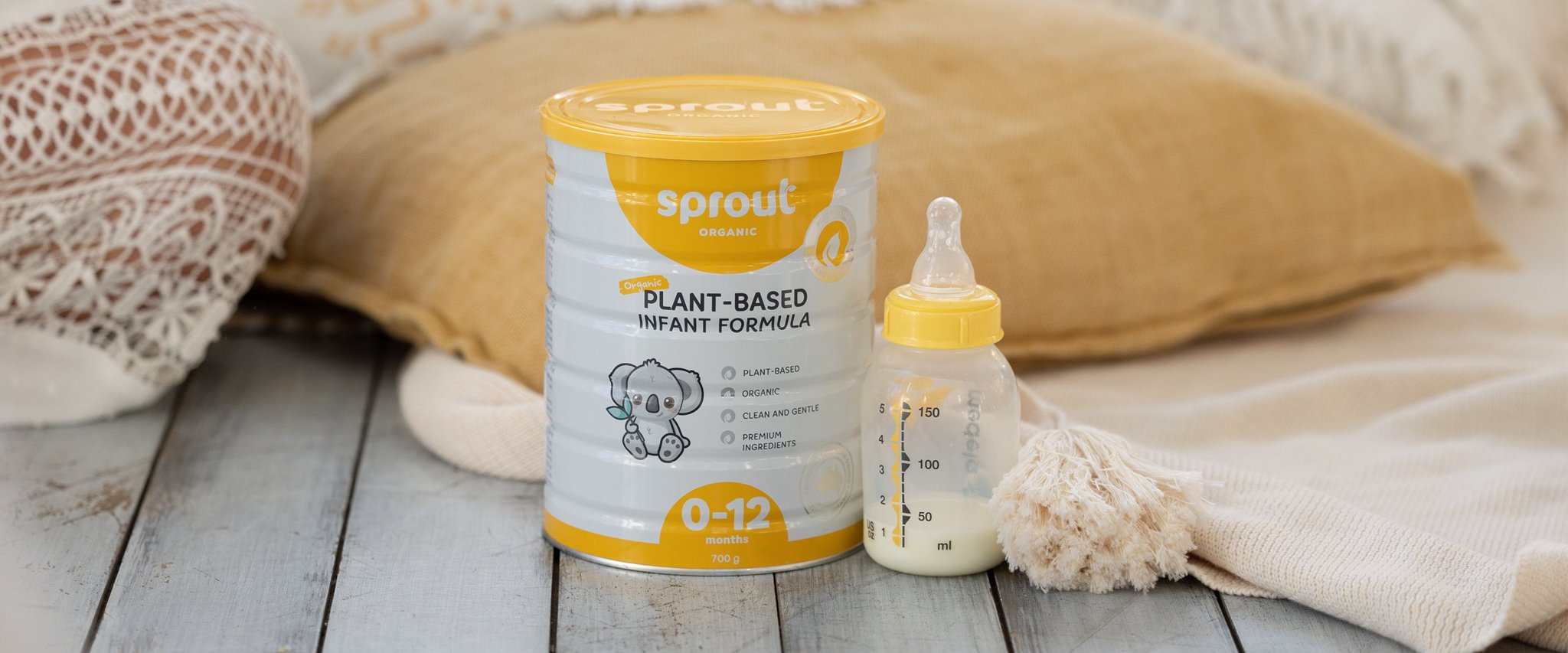A Mum’s Plant-Based Guide to Omega-3s (Pregnancy, Breastfeeding & Beyond)
Following a plant-based lifestyle during pregnancy, breastfeeding and early motherhood can be incredibly nourishing. One key nutrient that needs special attention during this time? Omega-3 fatty acids, particularly DHA (Docosahexaenoic Acid), which plays a vital role in your baby’s brain, visual, and nervous system development.
In collaboration with Monica Rundle, we’ve created this evidence-based guide to help plant-based mums feel confident, informed, and supported on their journey.
Understanding Omega-3 Fatty Acids
Omega-3s are essential polyunsaturated fatty acids (PUFAs) that the body cannot produce on its own - they must come from your diet.
The three main types are:
✅ ALA (Alpha-Linolenic Acid) – found in plant-based foods like flax, chia, hemp and walnuts.
❌ But here’s the catch: ALA needs to be converted into DHA/EPA — and this conversion is often limited in humans.
✅ DHA (Docosahexaenoic Acid) – crucial for healthy development of your baby’s brain and retina.
✅ EPA (Eicosapentaenoic Acid) – supports cardiovascular health and may help reduce inflammation.

Why DHA Matter So Much During Pregnancy & Breastfeeding
DHA is a structural building block for your baby’s brain and eyes. High-demand phases include:
-
The third trimester
-
The first two years of life, when brain growth is most rapid
The plant-based challenge
While ALA is abundant in vegan diets, the conversion to DHA and EPA is slow and often insufficient, especially when your body has higher needs during pregnancy and lactation.
That’s why relying only on chia, flax or hemp seeds is not advised for this stage of life.

The Omega-3 Conversion Challenge
Both Omega-3 and Omega-6 fats use the same enzyme for conversion. When Omega-6 intake is high (common in processed vegan foods and certain cooking oils), it can block the conversion of ALA to DHA.
To support optimal absorption:
- Increase Omega-3 intake
- Reduce excess Omega-6 sources
Evidence-Based DHA Recommendations
Pregnancy
Target: 300mg DHA daily
Benefits: Studies show DHA intake may support foetal brain development and cognitive outcomes in children.
What to do:
-
Supplement with algal oil (plant-based DHA source)
-
Start early - ideally before conception or as soon as possible
-
Take with a meal containing healthy fat for better absorption
Breastfeeding
Target: 300mg DHA daily
Why: DHA levels in your breastmilk depend on your intake.
What to do:
-
Continue algal oil supplementation
-
Exclusive breastfeeding to 6 months, continued to 2 years is recommended
-
Also ensure adequate intake of B12, iron and iodine
Infants (0–2 Years)
Breastfed babies: If mum is adequately supplementing, no separate supplementation is needed.
Formula-fed babies: Choose formulas fortified with DHA wherever possible.
Starting solids: From ~6 months, supplementation may be recommended - always consult your dietitian or paediatrician.

Practical Tips for Optimising Omega-3 Intake (Plant-Based)
1. Supplement with DHA/EPA from Algal Oil
-
Fish get their Omega-3s from algae (so we go straight to the source).
-
Recommended dose: 300mg DHA daily during pregnancy & breastfeeding.
-
What to look for: 300mg DHA per serve, third-party purity testing, EPA alongside DHA (bonus)
2. Manage Omega-6 Sources
Try to avoid or limit:
-
Soybean, safflower, sunflower, cottonseed, corn oils
-
Margarine and vegetable shortenings
-
Processed vegan snacks and mock meats
Cook with extra virgin olive oil for a better Omega-6 to Omega-3 balance.
3. Maximise ALA Conversion Naturally
-
Grind seeds like chia and flax for better absorption
-
Use cold-pressed oils where possible
-
Store ground seeds and oils in the fridge to prevent oxidation and nutrient loss

Feeling empowered to support your baby’s development, naturally? Save or share this guide with a plant-based mama who needs it.
Always consult a trusted healthcare provider or dietitian before starting supplements, especially during pregnancy, breastfeeding or for your little one.






Leave a comment